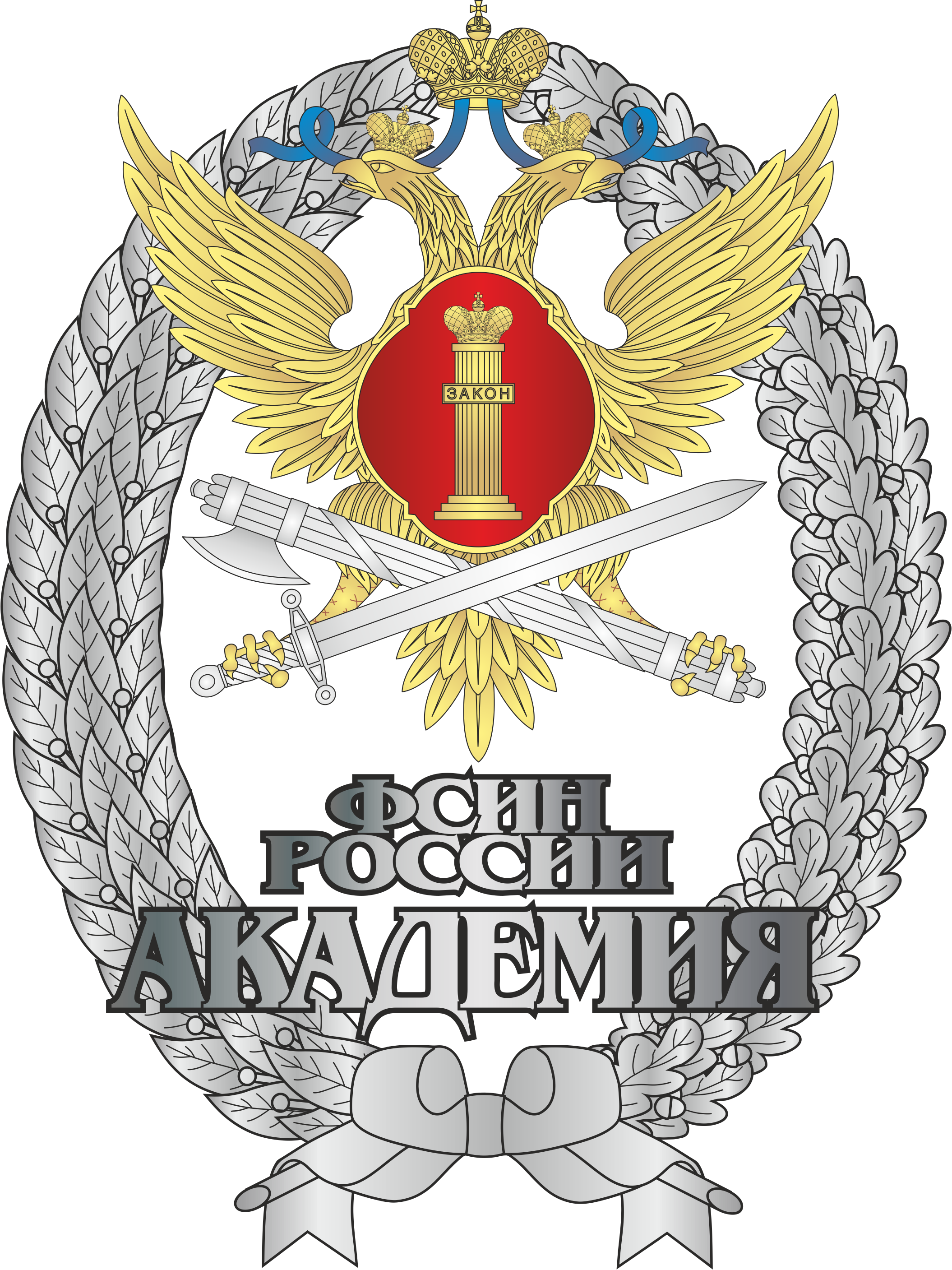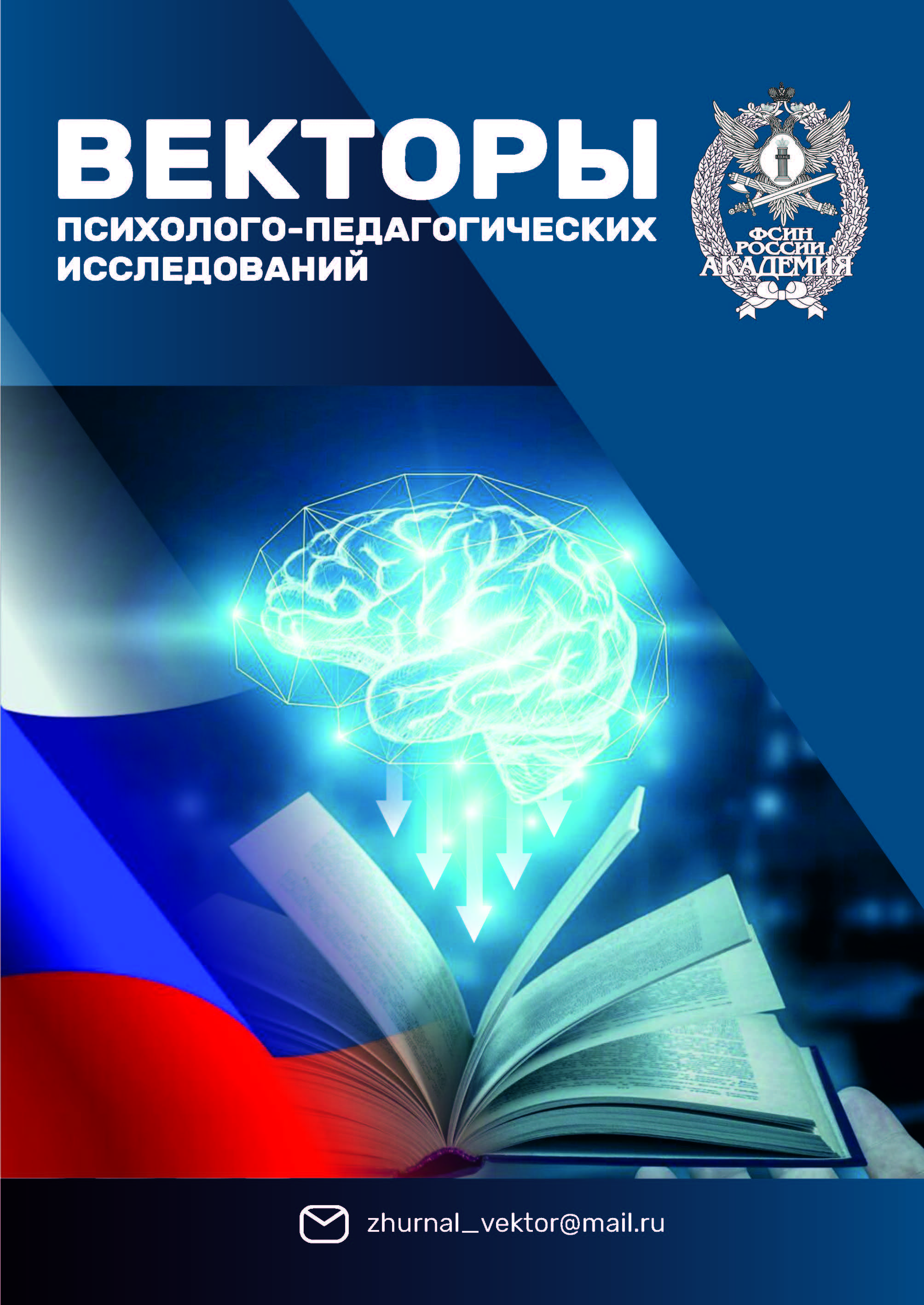UDC 159.9
The article examines the issues of harmonious socio-cultural development of juvenile convicts; presents various aspects of the development of the socio-cultural space of the penitentiary system. The content of the project "The book is the source of a new life and the way to correction" is outlined; the characteristic features of adolescence are analyzed. As a part of the experimental study, the following methods were used: the methodology "Motivation for success and fear of failure" (A. A. Rean); the methodology "Test of resilience" by D. A. Leontiev; the SAN questionnaire (well-being, activity, mood). The concepts of resilience, engagement, control, risk-taking, motivation for success, motivation for failure in juvenile convicts are studied. The directions in which the juvenile convict evaluates himself are revealed. The social activity of juvenile convicts has been studied. The humanistic orientation of a teenager's personality, egocentric, negativistic, sociocentric orientations are analyzed. The necessity of studying the orientation of juvenile convicts is substantiated. Such phenomena and processes in juvenile convicts as emotional awareness, control of their emotions, selfmotivation, empathy, recognition of the emotions of others are studied. The importance of introducing the project into work with juvenile convicts is substantiated. Effective forms of work with the book have been identified within the framework of the project "The Book is the source of a new life". The views of L. N. Tolstoy and D. I. Pisarev are presented and the need for their inclusion in the study is justified. The article formulates the most important tasks, the fulfillment of which is necessary in the aspect of working on the project "The Book is the source of a new life". Attention is focused on the expediency of analyzing the contents of the library collections of the FPS of Russia, which, if necessary, should be completed or re-equipped on the basis of an expert assessment of the educational impact on the readership of the penal system institutions. The directions of completing books, as well as audio and (or) video content (audiobooks, film adaptations, popular science, educational documentaries, etc.), approved by specialists, are proposed in the following areas of the library of institutions of the penal system. The vectors of the development of the project "The Book is the source of a new life" are presented. The article substantiates the need for the formation and development of the social health of juvenile convicts. It is determined that the formation and development of the social health of modern society is one of the directions in the field of education, upbringing and management. The social health of each person determines the health and development of society and the nation as a whole. Attention is focused on the fact that in modern society the risk for young people increases and we need to develop new forms of socialization, which determines the relevance of strengthening social health and the development of social activity among young people
socio-cultural space of the penal system, social health of juvenile convicts, the project "The book is a source of a new life", correction of convicts
1. Andreeva, G. M. 2018, Social psychology: textbook, Moscow State University, Moscow.
2. Andreeva, G. M. 2019, Psychology of social cognition: textbook, Aspect Press, Moscow.
3. Baykova, L. A. 2015, ‘Theoretical and practical problems of social health’, in Problems of personality formation in modern society: materials of the interregional scientific and practical conference, RSPU, Ryazan.
4. Baykova, L. A. 2005, Theoretical and methodological foundations of human social health research. Social health of children and students: monograph, Ryazan State University named after S. A. Yesenin, Ryazan.
5. Korolkova, S. Yu. 2023, ‘Social activity of youth’, Young scientist, iss. 12.2, pp. 39–40, viewed 22 February 2023, https://moluch.ru/archive/92/20339.
6. Aranskaya, O. S. 2005, Project activity of schoolchildren: methodological guide for 8–11 grades, Ventana-Graf, Moscow.
7. Baidan, E. 2004, ‘What children read’, Library, iss. 1, pp. 21–23.
8. Bozhovich, L. I. 2000, Problems of personality formation, Institute of Practical Psychology, Moscow.
9. Bozhovich, L. I. 2001, Personality and its formation in childhood (psychological research), Prosveshchenie, Moscow.
10. Rice, F. 2000, Psychology of adolescence and adolescence, Peter, St. Petersburg.
11. Sivitskaya, E. 2008, ‘Social health of schoolchildren’, Teacher, iss. 6, pp. 43–46.
12. Soboleva, E. N. 2007, ‘Modern project’, Education issues, iss. 1, pp. 6–7.
13. Sokovnya, I. I. 2005, Social maturation and health of schoolchildren: methodological guide for teachers, Prosveshchenie, Moscow.
14. Feldstein, D. I. 1998, ‘Psychological features of personality development in adolescence’, Questions of psychology, iss. 6, pp. 43–46.








